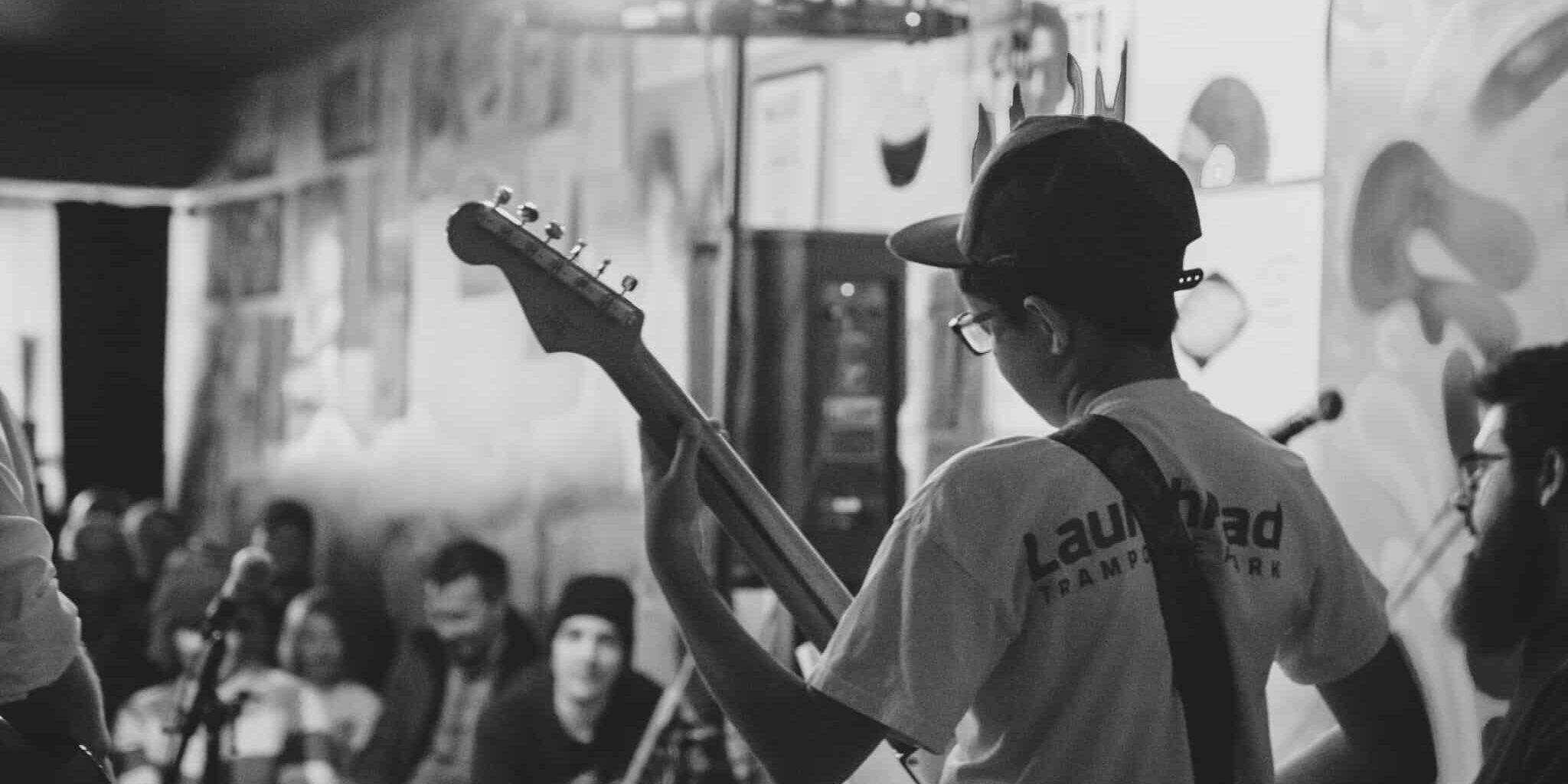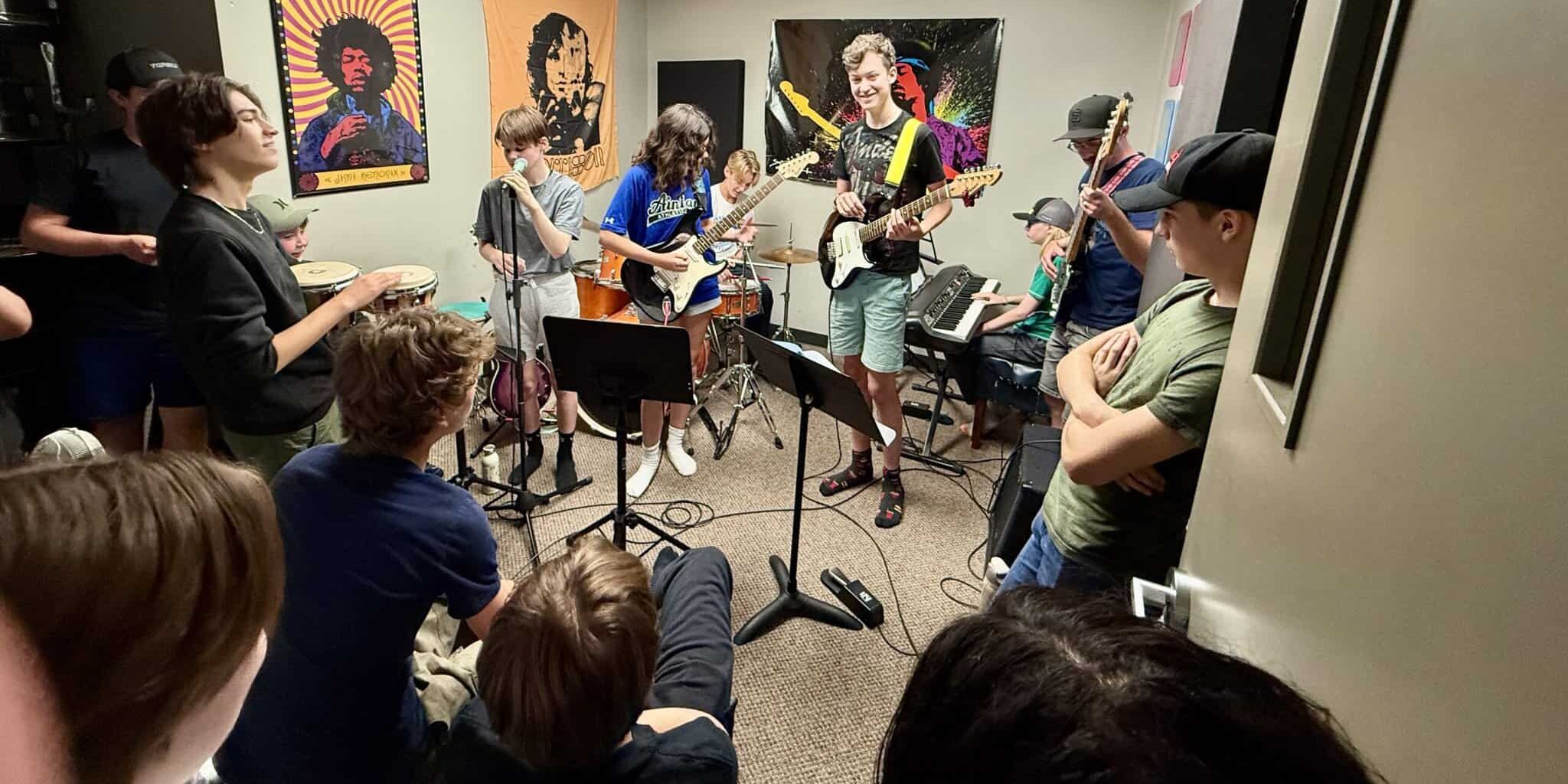WE WANT YOUR CHILD TO HAVE THE BEST POSSIBLE EXPERIENCE WITH MUSIC.
As a team, we are committed to trying our darndest to give your child an awesome experience learning music.
But sometimes families ask us what they can do to best support their child's learning outside of the actual lesson.
Read on for our list of five things that make the biggest difference.

1. LET US KNOW HOW YOUR CHILD LEARNS BEST.
We love customizing your child's learning so it meets them where they're at. The more we know, the better we can match your child to one of our classes and teachers. Help us ensure your child’s lessons are a perfect fit by considering:
What learning environment does your child thrive in?
Would your child have more fun in a group setting with other musicians or a one-on-one lesson between student and teacher? Does your child do better with a relaxed pace and time to think or a high-energy lesson that never slows down?
What types of music does your child enjoy listening or dancing to?
This doesn’t have to be as straightforward as “Rock” or “Country”. Maybe your child likes YouTube meme songs, a particular radio station, or exclusively songs that feature a kazoo solo.
2. SHARE YOUR EXPECTATIONS WITH YOUR TEACHER
Because music lessons can look so many different ways, it’s helpful to share your expectations with your teacher. Here are some examples of expectations parents have shared with us in the past:
Theory and reading music
Some parents place a high value on reading sheet music, while others value ear training. Similarly, some parents may expect a new theory exercise every week while others prefer theory being introduced on a song-to-song basis. If you prefer one method over another, let us know.
Playing with others
If you're excited about your child playing music with other people, let us know. We're always happy to keep an eye out for a Rock Band that might be the perfect fit. Knowing this will also allow your child's teacher to start building skills like improvising and reading chord charts into your child's lesson.
Songwriting & performance
Is your child already writing their own songs? Were they made to perform? Let your teacher know so they can foster those creative instincts!
It’s also okay if you don’t know what to expect! Maybe you simply want to see if your child likes learning music. Your teacher will suggest a starting place and work with your child to discover and develop their musical interests from there. It's what we're here for!
3. ESTABLISH GOOD PRACTICE HABITS
Effective practice habits look a little different for every student and schedule. Here are a few things to consider when creating your own routine:
The Space
An ideal practice space is somewhere your child actually likes spending time. While the dark, dank basement may be effective for containing the "noise," if your child doesn't actually enjoy hanging out in the basement, then it's probably not the best practice space.
You also want to pick a space where your child feels comfortable taking risks. If they're going to "really go for it" and try to hit that high note, they probably don't want to do it with the whole family listening in.
The Time
Set aside consistent times to practice and try linking them to other parts of your routine. For example, 15-20 minutes three times a week right after school or shortly after supper. A small amount of time, more often, is usually best.
4. SET GOALS
Goals and practice habits work together as a team. Goals help motivate and inform our practice, and consistent practice habits help us set realistic goals.
Goals are personal
It could be as big as performing a song at one of our rock shows or as small as memorizing the musical alphabet. All that matters is that it’s important to you!
It’s okay if you can’t see the whole picture
If you can tell your teacher what you dream of being able to play, they’ll help turn that into specific goals you can organize weekly practices around.
4. COME PREPARED TO YOUR LESSONS
While our teachers are awesome at adapting lessons on the fly, coming prepared helps make lessons more productive and fun.
Bring a binder with lined paper in it
This is for your teacher to write notes in. It’s also where you’ll store the sheet music or chord charts for songs you’re learning.
Bring your gear
This includes your instrument (where applicable), but it also includes stuff like guitar picks, drum sticks, or a water bottle for vocal students.
Bring your questions
If something is confusing, or your child is struggling during practice, let your teacher know!
BONUS: Tune while you wait
This is a tip for more advanced students. If you tune your guitar, bass, or ukulele in the waiting room, you’ll have that much more time in-lesson for learning.
HERE'S TO THE BEST MUSIC LESSONS YET!

